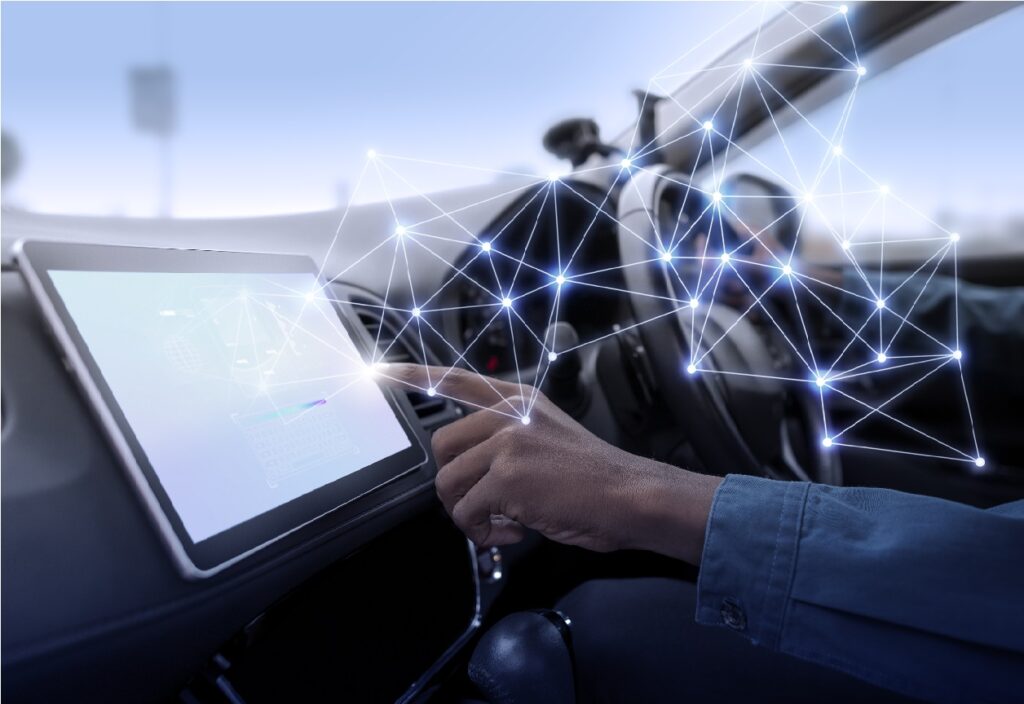The automotive industry is one of the fastest-evolving industries. New business models, automation, digitalization, and the development of new technologies – the industry is undergoing revolutionary changes. What can we expect in the automotive sector shortly?
Intense competition in the market, new legal standards, and a constantly changing technological environment entail a permanent race for the customer. Manufacturers compete by offering ever more advanced solutions. Autonomous cars are already a fact of life, not just the idea of visionaries. Stricter emission standards are driving the development of alternative energy sources and posing new challenges for OEMs. However, not only passenger cars and their manufacturers are affected by the changes. The current political and economic situation also affects components or spare parts manufacturers, buses, trucks, heavy equipment, and motorbikes. In a world of such dynamic change, how are automotive designers and managers supposed to find their way?
The automotive industry’s innovation rate will inevitably increase over the next decade. New models will be released faster, and the model range will be updated annually to implement the latest hardware and software solutions. Due to the high cost, customers must prepare to buy a new vehicle yearly. Various shared car solutions may soon supplement the traditional car sales business model.
This trend in the automotive industry is particularly relevant in large cities, where using a private car is becoming increasingly difficult. Too much traffic, insufficient parking space and extended time spent in traffic jams make individual car journeys unreasonable. In addition, the subscription model of car sharing makes car use more affordable.
With tailor-made mobility solutions, consumers will be able to order vehicles anywhere via an on-demand service. The share of shared cars in the market is forecast to increase dramatically – up to one in ten vehicles sold in 2030 could be a shared cars. Please get in touch with us if you are wondering how to prepare your company for this business model. Our specialists will advise you on the best solution.

As society becomes more aware of the environmental impact of its choices, circular mobility is emerging as a promising solution to reduce emissions and waste. The movement towards circularity will significantly impact car manufacturing, from the materials used to the vehicle designed and manufactured. Major automotive manufacturers such as Mercedes, Renault, and Volkswagen are implementing this new production model. By adopting circular design principles, car producers can reduce waste and minimize the environmental impact of their products. This means vehicles will be made using renewable materials, often recycled, such as ‘leather’ seat upholstery made from olive tree seedling extract or interior trim made from recycled plastic bottles. One of the ideas of circular mobility is to design vehicle components to be easily disassembled and recycled at the end of their life cycle.

One of the main reasons why automotive manufacturers want to invest in circular mobility is that it promotes innovation and creativity. Companies that embrace the concept are constantly looking for new ways to improve their products and services while minimizing their environmental impact. It pays off! By adopting sustainable practices, companies can reduce energy consumption, lower operating costs, and increase profitability. In addition, companies that focus on sustainability often have a better reputation among consumers.
Producing, using, and disposing of vehicles according to the circular economy aims to reduce material waste or pollution ultimately. Although there is still a long way until cars are fully circular, the automotive industry is already moving towards a more efficient and greener transport system.
At Endego, we support companies that are embracing green initiatives. Our specialists have the expertise to design vehicles according to circular economy principles. We can also keep designing or adapting production lines for such a business model. Write to us to help create a greener tomorrow.
Networked vehicles can connect to other cars or the transport infrastructure. Navigation applications showing real-time traffic data are already widely used around the world. The idea of a ‘mobility ecosystem,’ which uses software to find more efficient solutions between transport services and their users, is about to become a new reality.

In the not-too-distant future, OEMs will act as a massive database that processes oceans of information in a second. With them – with the customer’s consent, of course – manufacturers will be able to improve their services and offer personalized solutions. Local businesses can also benefit from this. For example, knowing from the location that someone repeatedly visits the same station, the owner can offer a discount or free coffee. In this way, it is possible to collaborate on many levels, positively impacting sales and the driver experience. Understanding big data technology is essential not only for the automotive industry but the economy as a whole. Unfortunately, along with all the benefits of big data, there are also risks. Viruses, malware, data theft, or even the possibility of some of the car’s systems being taken over are just some of them. Our Cybersecurity specialists have the knowledge and tools to protect customers from all the dangers that could arise from the car’s connection to the network.
In addition to the technological and societal changes described above, many other factors have affected how vehicles are produced in recent years. Political events, lack of availability of raw materials and workforce, rising costs, and delays in the delivery of designs and the production of components – are just some of the issues in the automotive industry that bring uncertainty and risk to the entire supply chain, including original equipment manufacturers (OEMs) and their TIER1 suppliers.
To deal with all these challenges, many manufacturers are relying on nearshoring. This increasingly popular practice focuses on outsourcing services to countries near the company’s headquarters. It simplifies operations and reduces costs. It focuses on proximity to suppliers and optimizing the production chain. You can read more about it in our expert article ‘5 biggest problems for car manufacturers – 1 solution – nearshoring’. In the case of the automotive industry, Poland is the place of nearshoring for many European companies. By locating investments here, production costs can be reduced, lead times shortened, and a high degree of control over the production process can be maintained. Endego is the perfect business partner for companies looking for support in the automotive sector. We offer our customers professional service, punctuality, access to specialists with a wide range of competencies, competitive prices, and attention to the highest quality of our products.
Rolling stock modernisation is becoming an increasingly attractive alternative to purchasing new vehicles, especially with rising costs, budget constraints and the need to operate in line with sustainable development principles. When does modernisation make sense and how can it be carried out effectively?
Read moreToday, bumpers are much more than just components that protect against the effects of collisions. They are advanced components that combine safety, aerodynamics, aesthetics and integration with electronic systems. How are they designed and why are they so important in modern vehicles?
Read moreModern trains are not just means of transport, but also embody innovation and safety. The design of the front end and car body combines aesthetics with advanced engineering and European standards. How does the appearance of a train affect its aerodynamics, energy consumption, safety and brand image? Here’s what’s behind the modern design of rolling stock.
Read more